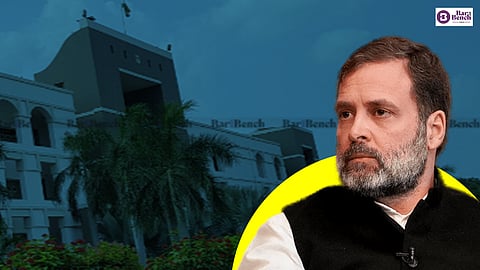Rahul Gandhi and Gujarat High Court
News
"He is people's representative; must make statements within limits and bounds": Gujarat High Court in Rahul Gandhi defamation case
Gandhi in turn told the Court that has not committed any grave or heinous offence like murder or any offence involving moral turpitude.

